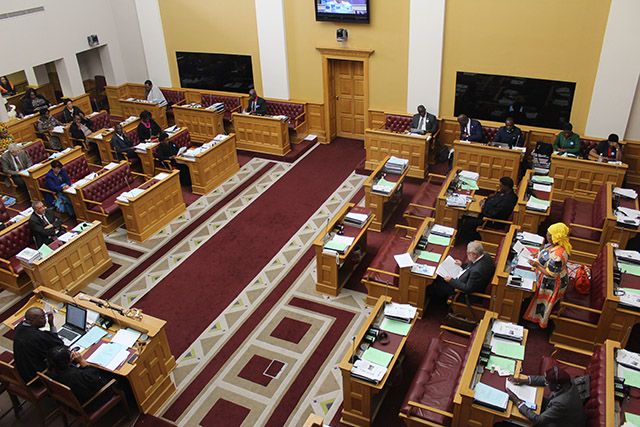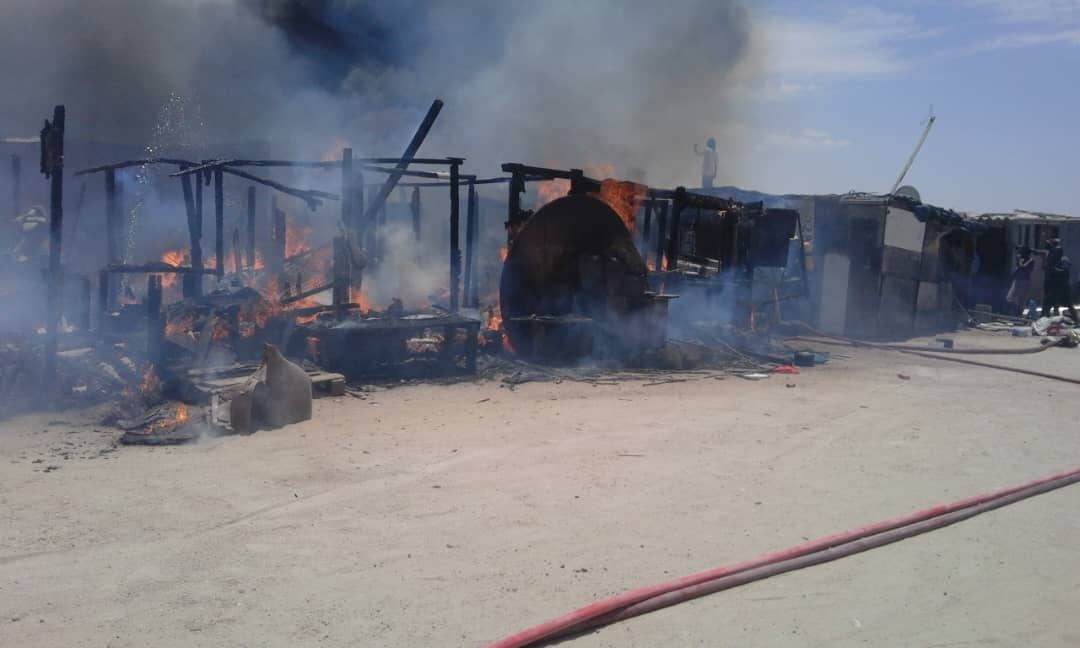MOST of the opposition parties contesting this month’s presidential and National Assembly elections have made it their mission to break the ruling Swapo Party’s dominance in the National Assembly.
Parties, including the Popular Democratic Movement (PDM), Swanu, RDP and the Landless People’s Movement (LPM), believe that the ruling party’s control with their two-thirds majority was the reason “why the government has failed to address several socio-economic challenges in the country since independence”.
The ruling party has maintained its control with the two-thirds majority of parliament since 1994.
At the moment, they hold 77 of the 96 seats in the National Assembly. Nine opposition parties in parliament share, between them, 19 seats, with the PDM holding the highest number of seats, being five.
PDM secretary general Manuel Naringombe last month told The Namibian that his party wants to gain at least 25 seats in the National Assembly.
Swanu president Tangeni Iijambo recently told The Namibian that during this year’s elections, opposition parties must aim to break the two-thirds majority, which enables Swapo to change laws at will.
He added that the dominance of the ruling party in parliament was the reason why the government has failed to address several socio-economic challenges in the country since independence.
Iijambo said they [Swanu] were setting their sights on attaining at least 10 seats in the National Assembly.
Nudo, on the other hand, only wants to gain five seats, while the LPM is targetting at least 20 seats.
“[We] want to break the two-thirds majority, which is jeopardising progress in Namibia,” Iijambo said.
Institute for Public Policy Research (IPPR) director Graham Hopwood told The Namibian that the two-thirds majority can be of significance when it comes to the passing of bills.
He said this can also be used to approve certain far-reaching decisions, such as the declaration of a state of emergency, the removal of the president from office, reversing presidential appointments, and the removal from office of the auditor general, amongst other things.
Hopwood added that the fact that the ruling party has been dominating the two-thirds majority of parliament could, in theory, allow Swapo to amend the Constitution without the agreement of the other parties.
The National Assembly can also pass bills by a two-thirds majority, even if the National Council has objections, he added.
Although the Swapo Party has so far enjoyed a two-thirds majority in parliament, Hopwood said the significance thereof was “mainly psychological”.
He added that the ruling party has been “mostly” cautious about using its two-thirds majority to change the Constitution, “although the wisdom of the 1998 third-term amendment is still debated”.
“The opposition believe that if Swapo falls below the two-thirds mark, it would indicate that the ruling party is in decline, and that they might be only one or two elections away from gaining a majority and forming a government,” he said.
However, The Namibian has reported on numerous instances in which the ruling Swapo Party has used its majority advantage to block crucial discussions on motions in the National Assembly.
Motions on ancestral land, corruption, foreign-trained doctors, discussions on fishing quotas and the resettlement programme are some of the motions that were outrightly rejected by Swapo members in parliament, without offering concrete reasons for their objections.
In 2014, The Namibian reported how the ruling party managed to push through constitutional amendments a month before the national elections.
Those amendments created the disputed vice presidential position, increased the number of seats in the National Assembly from 72 to 96, and increased presidential appointments to the National Assembly from six to eight, amongst other changes.
Opposition parties and civil society organisations were outraged by these amendments, as they were instituted without thorough public consultations.
The ruling party also used its two-thirds majority in 1998 to amend the Constitution to allow founding president Sam Nujoma to rule for a third term.
Political commentator Ndumba Kamwanyah said the dominance of one political party in the National Assembly was not “good for an inclusive democracy”.
What we have is what we call a “one-horse race” in parliament. So, as a result, you will end up not having a quality debate because the majority rules. Yes, the majority is elected by the people, but the majority can also result in tyranny.
“In that way, two-thirds can be very dangerous for democracy, especially in a society where you have people who think more one-sided, and [are] not broad or open-minded,” Kamwanyah reasoned.
Stay informed with The Namibian – your source for credible journalism. Get in-depth reporting and opinions for
only N$85 a month. Invest in journalism, invest in democracy –
Subscribe Now!










